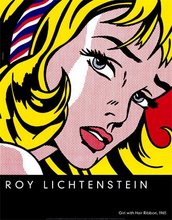I know...shocking isn't it? Rambo has a political situation to talk about? Did the Lions just win the Super Bowl because I think Hell just froze over! Fellow readers fear not...just sit back and enjoy and I promise there are no signs of the apocalypse nigh.
I was talking to one of my friends the other day while at his apartment and we began talking about, of all things, politics. We started by talking about a problem that has arisen by the low amount (percentage wise) of people in the US who actually vote in scheduled elections. It is easy to register but how many actually go out there and vote on Election Day? Just take a look at the numbers from the 2006 Congressional elections:
House of Representatives election voter turnout: 36.8%
Senate election voter turnout: 29.7%
My God man! Compared to other countries like England and France, which had close to 85% of the registered voters end up at the polls. 85% compared to nearly 37%?? Wow. My friend looked at me as we discussed this low number and he asked me why I thought our turnout was so low compared to these other countries. I said to myself, and eventually to him, that I had never really thought about it until this very moment. If I did have to give an answer my hypothesis would be that we, as a country, simply dislike and are ashamed of our government. This is not to say we are not proud to say we are American but whether you are a Republican or a Democrat, based off of these voting numbers, something is wrong with getting you to the polls...or you just feel that is unnecessary because either (a) you feel one vote does not make a difference or (b) you just are that lazy and decide it is not important. There are people out there, one of whom writes on this very blog, that would research and debate to the ends of the Earth just what candidate he believes is best suited for the job. In the end all that matters is that it is truly that...a belief. You can research every aspect of every candidate or you can vote a straight ticket but either way you are putting faith and belief into someone who, looking at recent elections, has not produced the desired result. No matter which way you slice it there is no real sign of progress of getting these potential voters off their asses and voting every Election Day. Then I thought to myself...how did we get to this position? How did we get to the point where no one wants to vote? Hmmm...
Political mumbo jumbo is not, and probably never will be, my strong suit nor a topic that peaks my interest but at the end of the day I love history and I often do think how things would be different had so many things not happened to our country both politically and socially. It is in this that I find the answer to my earlier question...how did we get to this position where no one wants to vote? I believe the answer lies within history...as does most actions in the political world. I looked at my friend after we determined that it was hating our government that has gotten us here but when did it begin? I believe that the true downfall of our government came over 40 years ago when the most potential ever seen in a President was gunned down November 22, 1963 in Dallas, Texas.
It has been said by people much more qualified than myself that JFK's assassination was one of the biggest turning points in American history. JFK was a graduate of Harvard with a degree in International Affairs, he voluntarily joined the US Navy for which he recieved a Purple Heart during WWII, and became a Senator in 1952. He became an example of how practicing a religion does not have to totally dominate a Presidency either: "I am not the Catholic candidate for President. I am the Democratic Party's candidate for President who also happens to be a Catholic. I do not speak for my Church on public matters — and the Church does not speak for me." He participated in the first televised Presidential Debates against Republican Richard Nixon. John F. Kennedy was sworn in as the 35th President at noon on January 20, 1961. In his inaugural address he spoke of the need for all Americans to be active citizens, famously saying, "Ask not what your country can do for you; ask what you can do for your country." He also asked the nations of the world to join together to fight what he called the "common enemies of man: tyranny, poverty, disease, and war itself." In closing, he expanded on his desire for greater internationalism: "Finally, whether you are citizens of America or citizens of the world, ask of us the same high standards of strength and sacrifice which we ask of you."
JFK instantly began on creating his own Foreign Policy by instilling what the Eisenhower administration had created to invade Cuba hoping to remove Fidel Castro from power, known as the Bay of Pigs Invasion. Although it did not produce the desired result, JFK took full responsibility for his actions (more than some Presidents can say) and did leave Castro thinking that another invasion could occur at any time. He also faced the Cuban Missle Crisis but resolved that with Khrushchev. He also created the Peace Corps. It is often debated as to whether the Vietnam crisis would have escalated as far as it did had Kennedy been re-elected in 1964 but we will never know...and this is where the turn takes place. LBJ had stated that he disapproved of pulling out of Vietnam, shown by almost immediately following the assassination reversing JFK's order for the removal of 1,000 troops by the end of 1963.
On June 26, 1963, Kennedy visited West Berlin and gave a public speech criticizing communism. Kennedy used the construction of the Berlin Wall as an example of the failures of communism: "Freedom has many difficulties and democracy is not perfect, but we have never had to put a wall up to keep our people in." The speech is known for its famous phrase "Ich bin ein Berliner".
Kennedy called his domestic program the "New Frontier". It ambitiously promised federal funding for education, medical care for the elderly, and government intervention to halt the recession. Kennedy also promised an end to racial discrimination. In 1963, he proposed a tax reform which included income tax cuts, but this was not passed by Congress until 1964, after his death. Few of Kennedy's major programs passed Congress during his lifetime, although, under his successor Johnson, Congress did vote them through in 1964–65.
JFK has become one of the most admired people in US History, whether it be for his Presidential practices or his social/family life. In the end though, tragedy and utter disbelief overran the United States on the November afternoon. The political and social distrust occurred here not only because of this assassination but because of the prior assassinations of Kennedy's brother Robert (RFK) and Martin Luther King, Jr.
After that little biopic of JFK let us look at why I believe that we have lost so much faith in our Presidents and our government since his death: LBJ made the Vietnam conflict worse after Kennedy's death, Richard Nixon had Watergate, Gerald Ford offered a pardon to Nixon and was in office during the time of 7 percent inflation causing recession, Carter had control of a horrific economy consisting of double-digit inflation, oil shortages, and high unemployment, Reagan had all of these, Bush Sr. had another economic recession following the Gulf War, Clinton had the "office politics" problem, and George W. Bush is George W. Bush.
This is not meant as a Presidential bashing as each of the above listed have had their fair share of positive acts while in office but none have done enough to overtake what Carter called a "crisis of confidence." When will our confidence in our government return? We've got a new President to be named in 2008...let's start there! Get out there and take back this country voters. Make your voices heard and show the government that we have moved on since 1963 and that we are confident they can lead us effectively...at least once W is out of office.
Subscribe to:
Post Comments (Atom)



No comments:
Post a Comment